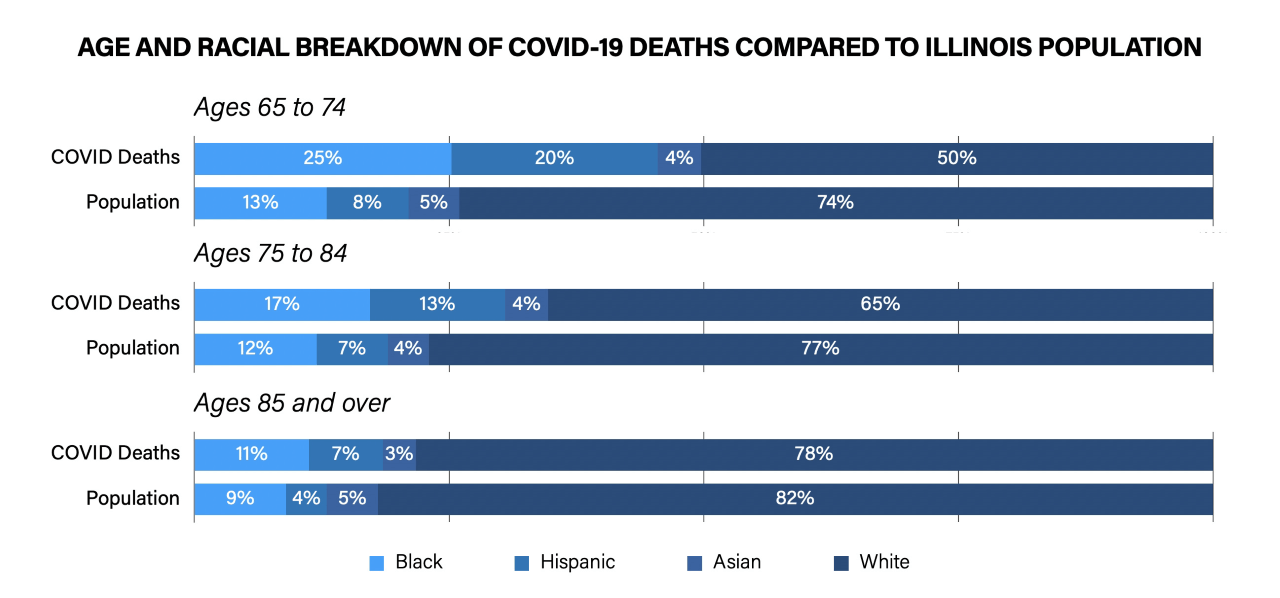Building on guidance by the Centers for Disease Control and Prevention’s (CDC) Advisory Committee on Immunization Practices (ACIP) and the Illinois Department of Public Health (IDPH), Governor JB Pritzker announced guidelines for the next stage of COVID-19 vaccine distribution across Illinois – Phase 1B.
“ACIP’s guidance serves as the foundational blueprint for Illinois’ Phase 1B plan, with one key adjustment: here in Illinois we are more strongly pursuing equity in the distribution of our vaccinations,” said Governor JB Pritzker. “For people of color, multi-generational institutional racism in the provision of healthcare has reduced access to care, caused higher rates of environmental and social risk, and increased co-morbidities. I believe our exit plan for this pandemic must, on balance, overcome structural inequalities that has allowed COVID-19 to rage through our most vulnerable communities.”

“With limited amounts of vaccine available at this time, it is important to prioritize individuals who are at greatest risk of exposure to COVID-19 and those at greatest risk of severe illness or death,” said IDPH Director Dr. Ngozi Ezike. “Generally, Latinx and Black populations have been disproportionately impacted by COVID-19 with data showing related deaths at younger ages. We are hopeful that by lowering the eligibility age to 65 years we can help reduce this disparity.”
Phase 1B will begin when Phase 1A is substantially complete. It will include all Illinois residents age 65 years and older and “frontline essential workers,” as outlined by ACIP. In order to reduce COVID-19 mortality and limit community spread in Black and Brown communities, Illinois reduced the age eligibility in Phase 1B by 10 years from ACIP’s recommendation. Currently, the average age of COVID-19 death is 81 for White residents, 72 for Black residents and 68 for Latino residents.
The frontline essential workers designation includes many residents who carry a higher risk of COVID-19 exposure because of their work duties, often because they are unable to work from home, and/or they must work closely to others without being able to socially distance. Communities of color are disproportionately represented in many of these industries. The category defined by the federal government as frontline essential workers, which the CDC estimates as about 30 million Americans, includes first responders; education workers, including teachers, support staff and childcare workers; manufacturing, distribution and agriculture workers, including grocery store workers; United States Postal Service workers; public transit employees; corrections workers and incarcerated people, and others.
All in all, Phase 1B totals approximately 3.2 million people throughout the state of Illinois.



